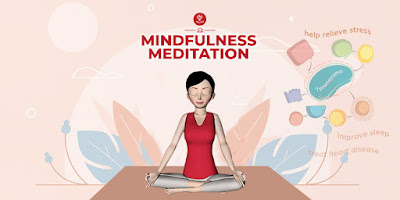Stay Sharp: 5 Brain Exercises for Memory That Can Improve Mind Functionality
Introduction
The memory generally deteriorates as we age, but the good news is that there are techniques to keep our wits fresh. Including brain workouts in your everyday routine can aid in the improvement of memory and cognitive function. In this post, we will look at five exercises that might help you improve your memory and keep your mind fresh.
Mind Mapping is the first exercise.
Mind mapping is a method of visually organizing information. It aids memory by letting your brain build connections between various types of knowledge. Begin with a key thought and add branches with relevant subtopics to construct a mind map. This strategy may be used in a variety of situations, from studying to generating ideas. The following are some of the advantages of mind mapping: Improves memory and knowledge retention; reduces stress linked with disorganization and chaos. Increases creativity and productivity. To make a mind map, follow these simple steps: Begin by placing a focal theme in the center of your page. Branches with related subtopics should be added. Connect concepts by using keywords, pictures, and symbols. To differentiate between parts, color code or use separate typefaces.
Here are some examples of how to utilize mind mapping in your daily life:
Sort through your to-do list.
Make a daily meal plan.
Make preparations for a presentation.
Take notes during a presentation or meeting.
Mnemonic Techniques (Exercise 2) Mnemonic Devices
By linking new information with prior knowledge, mnemonic strategies can aid in memory retention. Acronyms, acrostics, visualization, and chunking are all popular mnemonic methods. These methods may be used to recall phone numbers, names, dates, and other details.
Mnemonic approaches have the following advantages: Memory retention and recall are improved. It increases creativity and stimulates the brain. Reduces the tension caused by forgetting. Consider the following examples of how to use mnemonic strategies in your daily life: Remembering names: Make a picture or relationship between the name and a visual to aid memory. To remember phone numbers, make a mnemonic by linking each digit with a letter and constructing a word or phrase. Tips for making unique mnemonics: Make the association more remembered by using vivid pictures. Make use of existing knowledge to connect old and new information. Make up a tale about the association to help you remember it.
Brain Teasers and Puzzles (Exercise 3) Puzzles and Brain Teasers
By exercising your brain in problem-solving, brain teasers and puzzles can increase cognitive function and memory. Crossword puzzles, Sudoku problems, riddles, and other puzzles can increase memory by keeping knowledge in an enjoyable and engaging manner.
The following are some of the advantages of brain teasers and puzzles:
It enhances cognitive function and memory retention.
Improves problem-solving abilities.
Stress reduction and mood enhancement
To add brain teasers and puzzles into your everyday routine, follow these steps:
- Set aside a certain amount of time each day to work on puzzles.
Put yourself to the test with progressively difficult problems.
To keep the brain engaged and challenged, try different sorts of puzzles.
- The following websites and apps can help you locate difficult brain teasers: Crossword puzzles and Sudoku applications by Lumosity Brain
Exercise 4: Meditation and Mindfulness
By lowering stress and anxiety, meditation and mindfulness practices can aid boost memory. Anxiety and stress can have influence on the brain's capacity to develop and maintain memories. Meditation and mindfulness encourage relaxation, which aids in the improvement of brain function and cognitive performance. The following are some of the advantages of meditation and mindfulness: Stress and anxiety reduction Memory and cognitive function enhancement promoting sleep and relaxation To practice meditation and mindfulness, follow these step-by-step instructions: Find a quiet, comfortable spot to sit. Concentrate on your breathing and return your focus to it anytime you are distracted. Begin with 5-10 minutes and progressively extend the time. Suggestions for introducing mindfulness into daily activities:
- Eat thoughtfully, focusing on the flavor and texture of each bite. Take pauses throughout the day to practice mindful breathing. Take a mindful stroll, paying attention to your environment and your breathing.
Exercise 5: Physical Exercise and Aerobic Activities
By boosting blood flow and oxygen to the brain, physical exercise can aid enhance memory and cognitive performance. Regular exercise also encourages the development of new neurons and may lower the risk of cognitive decline.
The following are some of the advantages of physical activity:
Memory and cognitive function enhancement
lowering the likelihood of cognitive deterioration
Promoting overall health and happiness
Among the several forms of physical workouts that aid in memory development are:
Resistance exercise
Exercise for the heart
Pilates and yoga
Tips for adding regular physical activity into your routine:
Choose enjoyable activities to make fitness a habit.
Begin slowly and progressively increase the length and intensity of your activities.
Use internet tools and applications to locate new and exciting fitness regimens.
- Aerobic exercises that improve brain function and memory include: Dancing Cycling Swimming
Conclusion
Memory loss is a normal part of aging, but there are methods to keep our minds fresh and increase cognitive performance by engaging in brain exercises. We looked at five activities to increase memory in this article: mind mapping, mnemonic strategies, brain teasers and puzzles, meditation and mindfulness, and physical activity. You may enhance your memory and cognitive performance over time by including these workouts in your everyday routine. So, what are you holding out for? Start doing these exercises right away and keep track of your improvement to reap the long-term advantages of having a keen recall!






No comments:
Post a Comment